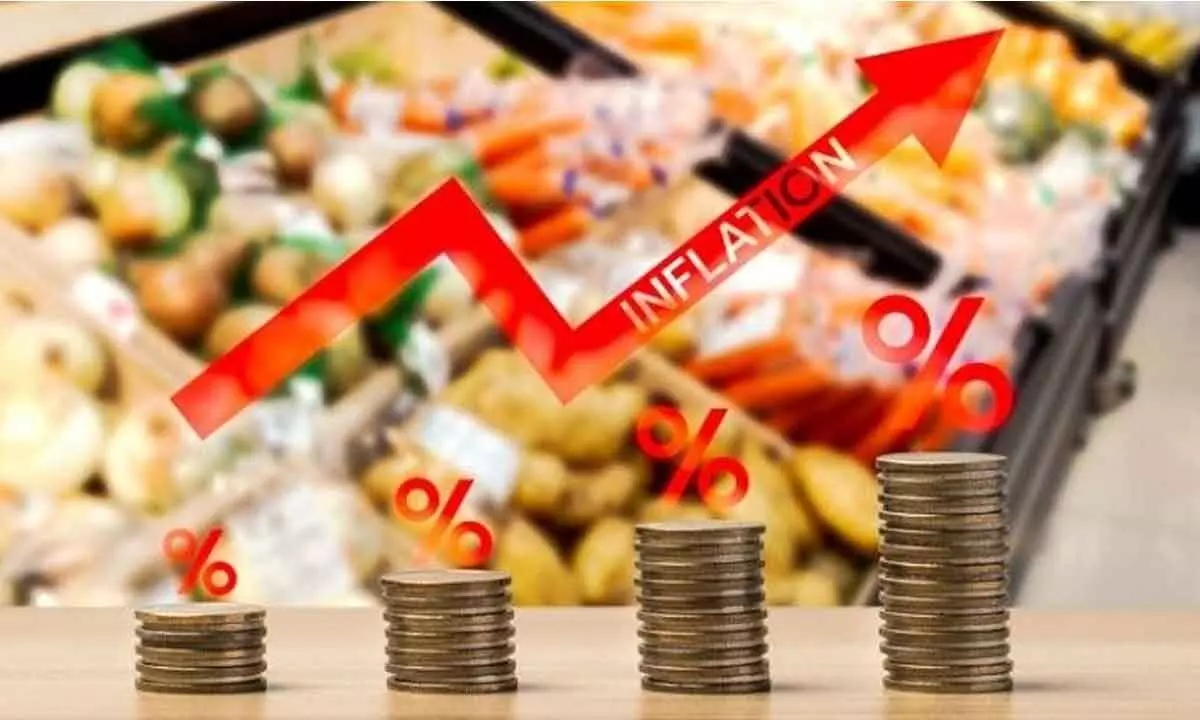Adaptability and strategic innovations can contain impact of food inflation in hospitality industry
Striking a balance between managing costs and safeguarding profitability crucial to deliver value to customers
image for illustrative purpose

For companies in the food industry, the challenge lies in managing these cost increases while striving to maintain price competitiveness. Factors like supply chain disruptions triggered by global events and extreme droughts in western United States have further exacerbated the situation, driving up food prices and constraining the availability of critical ingredients
India is vulnerable to food-price shocks from extreme weather events and global factors despite a recent moderation in prices, the governor of Reserve Bank of India (RBI), Shaktikanta Das, said at the recent conference of bankers in Mumbai.
“Consumption demand has been relatively subdued, especially in the value segment and rural markets on the back of sub-par monsoons and persistent Food inflation, which saw a sharp spike during the quarter,” ITC said in a statement.
Persistent inflation has impacted rural demand, which contributed to over one-third of FMCG sales, as consumers are still tightening discretionary spending after uneven rains, analysts said.
“Uneven rain and rain deficit is expected to impact production of maize, sugar, oilseeds and spices that may have an adverse impact on pricing," Nestle India said, adding that "coffee continues to be volatile because of the global supply deficit. The weather during the harvest of the Indian Robusta crop may impact production. Upcoming winter weather may impact wheat production".
Inflation, characterized by the sustained increase in the general price levels of goods and services, leads to a decrease in the purchasing power of a currency and has far-reaching effects on businesses, consumers, and the overall economy. It impacts production costs, consumer spending and investment decisions. It is a critical factor in monitoring and managing businesses across all sectors.
Understanding and adapting to these inflationary pressures is the key to maintaining profitability and fostering growth in an ever-changing landscape.
Inflation takes a toll on various aspects of the foodservice industry, from raw materials to labor costs to consumer spending, all of which can seriously impact the profitability and growth of businesses within the sector.
For companies in the food industry, the challenge lies in managing these cost increases while striving to maintain price competitiveness. Factors like supply chain disruptions triggered by global events and extreme droughts in western United States have further exacerbated the situation, driving up food prices and constraining the availability of critical ingredients. Despite occasional fluctuations in raw material costs, many major corporations, including industry leaders like PepsiCo, have indicated their intent to continue raising prices or sustain them at elevated levels in the foreseeable future. This strategic stance reflects the need to strike a delicate balance between managing costs and safeguarding profitability, all while delivering value to customers in an inflation-affected landscape.
Adaptive strategies for businesses: As the food industry grapples with the formidable challenge of inflation, businesses are adopting strategies to weather the storm, maintain profitability, and continue providing value to their customers. Here are some key strategies that businesses are implementing:
To combat the escalating costs brought on by inflation, establishments are turning to operational optimization as a crucial strategy. Key tactics involve cross-training staff to fulfill various roles and fostering adaptability during labour shortages and rising costs. Stringent inventory control practices are integral to minimizing waste and maximizing ingredient efficiency, with inventory management software for precise tracking and reorder management.
Furthermore, the adoption of restaurant management software automates vital tasks like order processing, inventory management, and staff scheduling, providing a streamlined operational framework to navigate the challenges posed by inflation while maintaining competitiveness in the food industry.
Analyzing and adapting menu offerings are another critical strategy operators employ to mitigate the impact of inflation. Menu engineering involves a meticulous examination of menu items to strike a balance between cost-effectiveness and maintaining quality. Restaurants can strategically showcase more cost-effective ingredients without compromising on taste or customer satisfaction.
Bulk purchasing of essential ingredients ensures a steady supply and helps lock in prices, providing some insulation from the market's volatility. Collaborate with other restaurants in your area to pool your purchasing power and negotiate bulk discounts with suppliers.
In the face of persistent inflationary pressures, businesses adopt forward-thinking strategies to safeguard their financial stability and ensure long-term viability.
Long-term planning is emerging as a crucial facet of their response, encompassing the following key considerations: A proactive approach to mitigate the impact of potential future price increases is to explore financial instruments such as commodity futures. Businesses can hedge against the volatility of essential ingredient prices by strategically investing in these instruments.
Maintaining long-term, predictable relationships with suppliers is a strategic asset in the arsenal of foodservice businesses, ensuring reliable access to essential ingredients while mitigating the impact of inflationary pressures.
Sustainability practices have transcended the realm of environmental responsibility to become a powerful cost-saving strategy for establishments.
Inflation has presented the food industry with significant challenges, from rising raw material and labor costs to shifts in consumer spending patterns. However, for businesses that adapt and innovate using the abovementioned strategies, there are opportunities for growth and success in this challenging economic environment.

